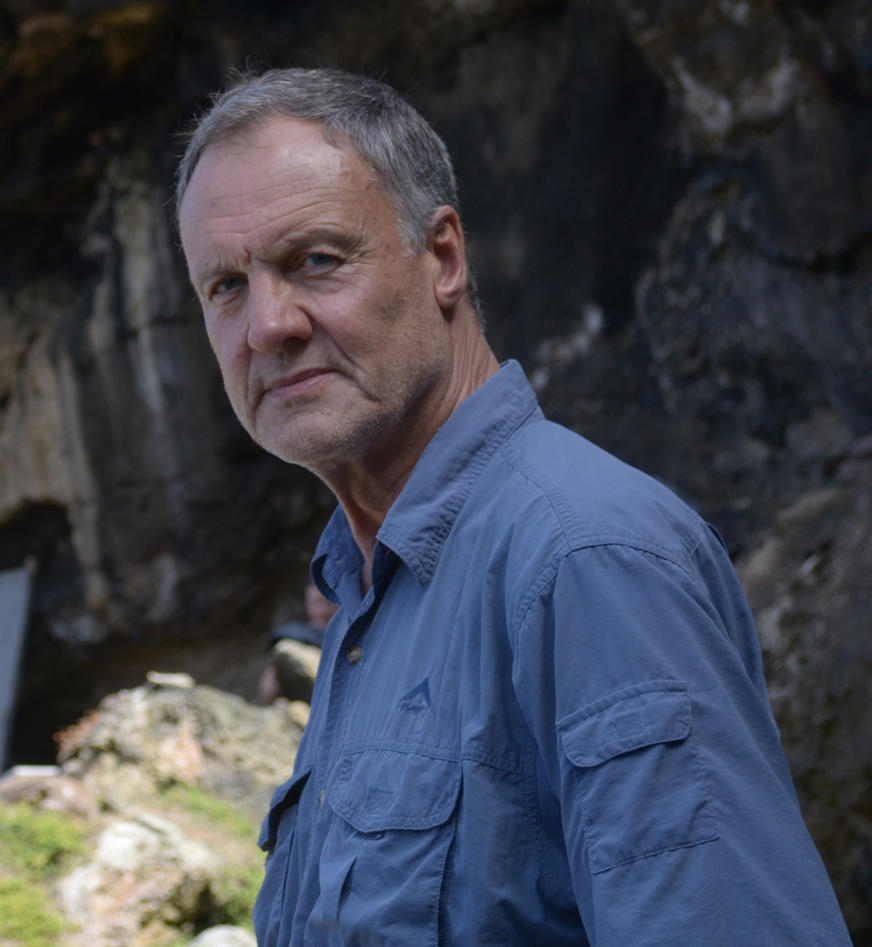Mother Africa – Welcome Home
The behavioural origins of Homo sapiens in southern Africa between 120.000 – 50.000 years ago. Meet Archaeologist Christopher Henshilwood in this lecture presented by Darwin Day 2019 and the Horizons Lectures.

Hovedinnhold
When, why and how did humans first become behaviourally modern? Was social cohesion enhanced by symbolic material culture or vice-versa and did it lead to innovation? What cognitive skills had to be in place in order for other skills to develop, like language? How adaptable were humans to environmental change and did climate impacts act as drivers for technological innovation and subsistence adaptations? Can we determine the genomic relationship of these early H. sapiens to extant human populations? We in SapienCE believe this holistic approach will provide ground-breaking insight into the diverse aspects of what it means to be human and place Norway as a world leader in this field.
SapienCE is a dynamic Centre for Excellence, based at the University of Bergen. It has strong research links with the University of the Witwatersrand in South Africa. SapienCE is developing and applying innovative interdisciplinary approaches to a series of well-articulated fundamental research questions relating to the behavioural evolution of early Homo sapiens after 120 000 years.
The lecture is intended for a wide audience, will be held in English, and is part of the Horizons seminar series dedicated to big questions in science.
Refreshments will be served from 16:00; the talk begins at 16:15.
About Christopher Henshilwood:
Christopher Henshilwood’s interests as an archaeologist, scientist, project leader and teacher encompass the development of complex technology, social systems, subsistence, environment, syntactic language and material culture associated with early Homo sapiens, especially those groups who evolved in southern Africa between 100 000 – 50 000 years ago. He has concentrated on finding archaeological sites that were occupied by H. sapiens during the Later- and Middle Stone Age and has excavated 20 of these sites in southern Africa. He currently leads research involving more than forty foremost scientists in diverse fields in Europe, Africa, the UK and USA. He is a Distinguished Professor and holds a 15 year SARChI Research Chair in Origins of Human Behaviour (2008 – 2022) at the University of the Witwatersrand, Johannesburg, and is the Director of a 10 year Centre of Excellence, the Centre for Early Sapiens Behaviour (SapienCE) at the University of Bergen, Norway funded by the Research Council of Norway (2017-2026). A core focus of his projects is to encourage young researchers, especially women and the previously disadvantaged, in Africa and Europe. He has authored or co-authored more than 85 peer reviewed, wide-ranging papers on the origins of language and symbolism; the effects of climatic variation on human demographics, and on the theory of human behavioural evolution and published two books.
